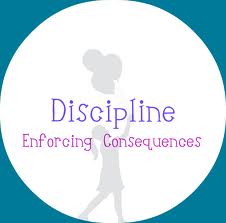About a week ago I was at the program tagged “Moments with Children” organised by African Child Social Empowerment Centre (ACSEC) to discuss the topic “Nurture and Realise your Career Aspirations”. For me it was a rare privilege to have an opportunity to be part of the lives of these children who ranged between the ages of 9 and 17. That, however, wasn’t as important as some of the things I discovered while discussing with them.
Find some of my discovery and the questions that followed below:
– Most of the children who were less than 12 years didn’t know what career was. I was even more surprised when 1 of the kids told me he didn’t know what a magazine was. (Sigh) I was very worried for them and the future of my country. Parents, teachers and so many other stakeholders are not exactly working towards making the future great. If we are, then our focus should be these children. I had a lot of questions on my mind while I was there which I’m yet to answer. Why do we all go to school when a child at 12 years is yet to have a bearing about his future career/vocation/job or whatever you might choose to call it? What’s in our curriculum, especially for the schools which are run by the government? Is it preparing us for the future or just reiterating what education was in the past? If we continue at this rate, can we ever get more people to leave below the poverty level in the nearest future? What’s a parent role in all this? Where are the parents especially at this stage of a child’s life? What are they doing to ensure that their own kids turn out right? Hmnnnnn!
– The older children in Senior Secondary knew the basic definitions but the big issue was that they were not tying the knots. Or how will you explain the fact that a Secondary School final year student, who will be taking her final exams early next year, does not know the relevance of Chemistry to Pharmacy that she plans to study in the University in just a year’s time? Many of them also had an idea of some dreams they hope to achieve but do not have a clue on how to achieve them. They are void of understanding of what it entails or what they need to do to get there.
Why am I writing about this today? I have heard many times that the development of any country starts when her people are educated. Education does not necessarily have to be in the four walls of a building such as a school. It should be at every given opportunity that life presents. According to wikipedia, education in its general sense is a form of learning in which the knowledge, skills, and habits of a group of people are transferred from one generation to the next through teaching, training, or research. As such parents and other caregivers have a lot more responsibility to ensure that their children and wards get all the education they require. Are you are parent? Or are you planning to become one? If you answered yes to any of these two questions, then you need to work at being prepared to be a parent. Parenting does not end with bringing forth a child and paying his or her bills. It’s a whole lot of responsibility. Do not leave your responsibility to teachers or the government. It is primarily your duty to ensure they turn out right. When we know what is right then it is easier to work together with government and other professionals to improve on the school curriculum and the entire educational system.
The building of the next generation starts with raising a strong child. We can make it happen one child at a time. Let’s Do It!









